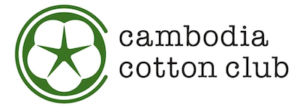Inquiring about the Tohoku Cotton Project and Sumitomo Chemical, I learned more about the current status of organic cotton by contacting the participating companies and the relevant ministries.
The following exchange is the gist of a question-and-answer session with the founder of the Tohoku Cotton Project, a company specializing in organic cotton spinning. (Atsushi Furusawa is my name.)
Atsushi Furusawa: "I would like to ask the person in charge about Tohoku Cotton?"
Contact person: "What kind of inquiry?"
Atsushi Furusawa: "Your company's organic cotton, according to your website, "Organic cotton is a material that is not genetically modified and is organically grown and produced on farms that have not used pesticides or chemical fertilizers for more than three years. ", it says."
Contact person: "Yes, that's correct."
Atsushi Furusawa : "For Tohoku Cotton, Sumitomo Chemical is providing four types of pesticides specifically for cotton, right?"
Contact person: "I did not know that. However, Tohoku Cotton is not treated as an organic product in the first place, so there is no problem."
Atsushi Furusawa: "So, other than the Tohoku Cotton, are we to understand that your products are organically grown on farms that have not used pesticides or chemical fertilizers for more than three years, as shown on your website? "
Contact person: "Yes, that's correct."
Atsushi Furusawa; "However, the organic cotton certification organization of which your company is a member has announced the use of 110 types of pesticides. This seems to contradict the explanation that your company's organic cotton is "pesticide-free”."
This question changes the flow of the conversation and the tone of voice of the contact person.
Contact person; "I don't think it's possible to grow cotton without pesticides. We do use pesticides that are not toxic to the human body!"
Atsushi Furusawa: "Many consumers believe that organic cotton is a material that has not been genetically modified and has been organically grown on farms that have not used pesticides or chemical fertilizers for more than three years. What do you think?"
Contact person; "We leave that to the judgment of each consumer. We are making efforts to promote organic cotton so that there are no misunderstandings among consumers. As for our company, we try our best to avoid misunderstandings."
Atsushi Furusawa; "Tohoku cotton that has been treated with Sumitomo Chemical's pesticides is processed in the facilities of your factory, which specializes in organic cotton. Do you separate organic cotton from Tohoku cotton that has been treated with pesticides and other chemicals? Or are they mixed together and spun?"
Contact person; "I don't know that much. I have a work appointment at 2:00 p.m., so please excuse me."
These were the 20-minute interviews.
What this interview revealed was that companies take care in describing their websites to avoid misleading consumers.
I also called other companies and retailers that specialize in organic cotton products to find out what was going on.
( to be continued )
